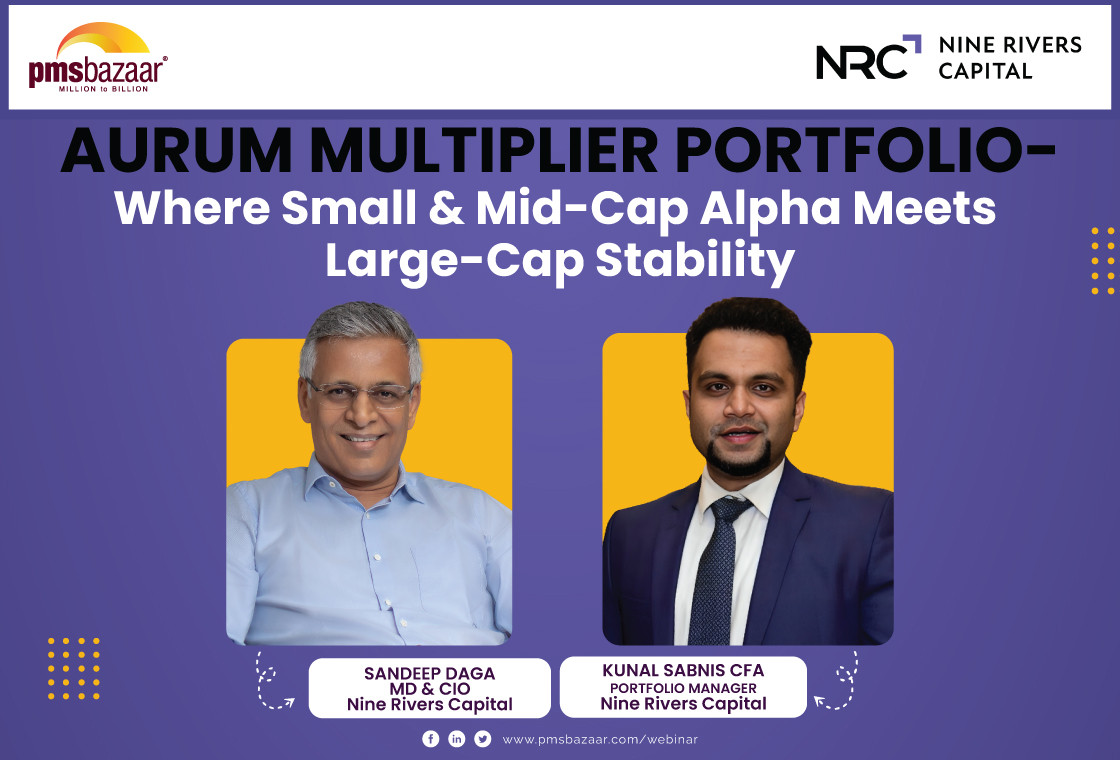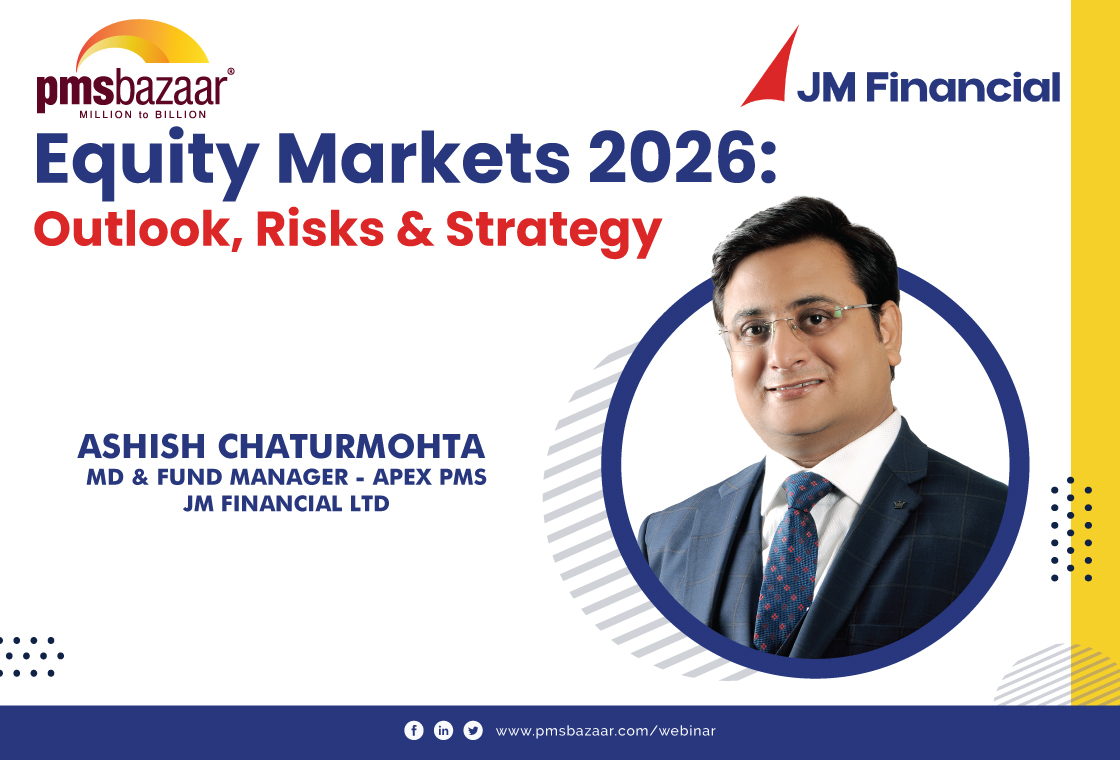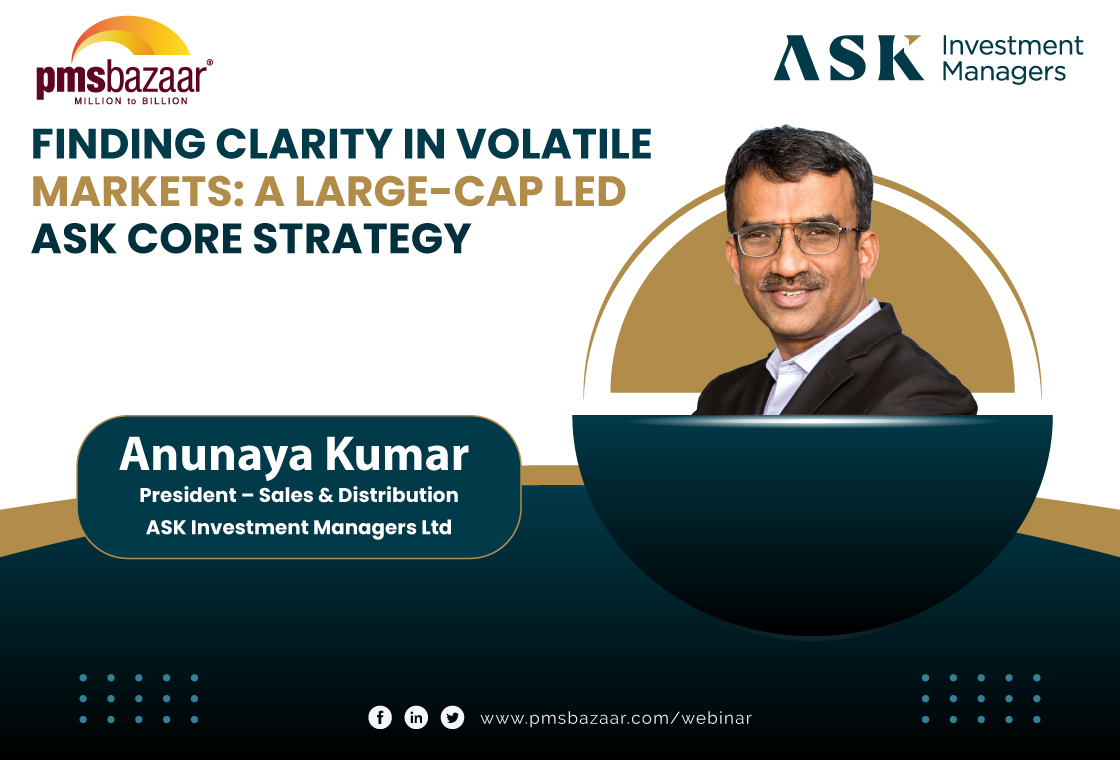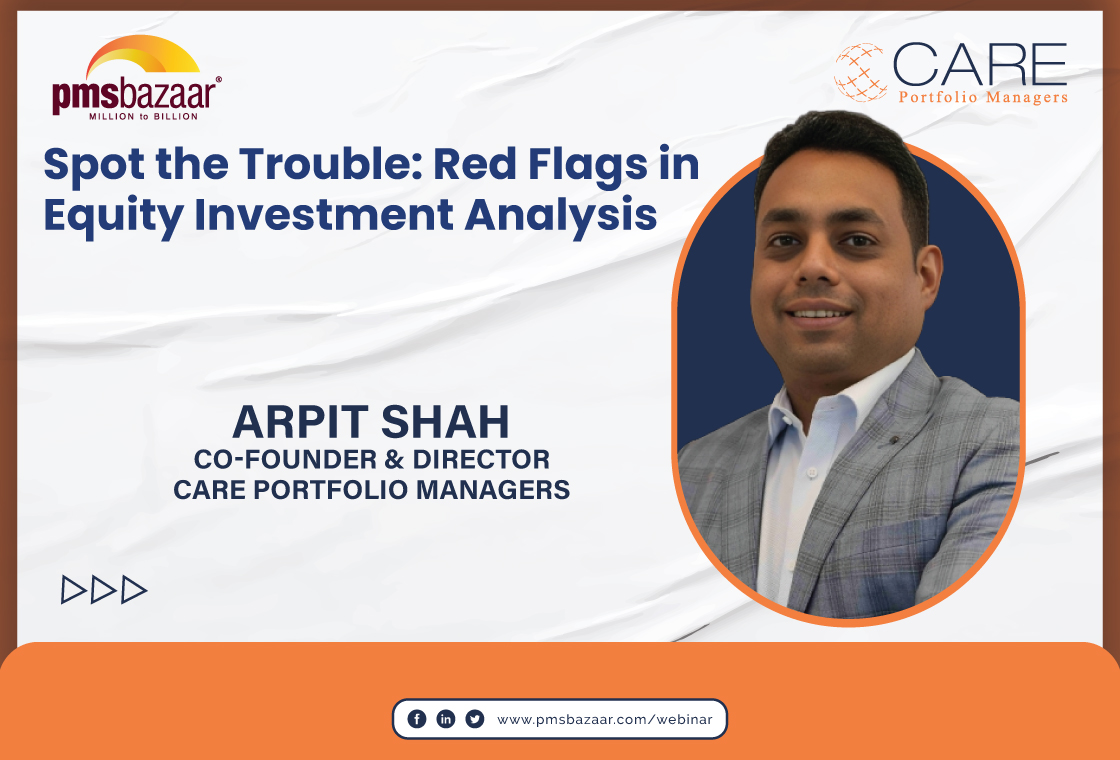PMS investment approaches invest across stocks, bonds and a mix of both for balanced risk and return. Portfolio managers offer a balanced mix between equity and debt based on investors' risk tolerance. Read more to understand where PMSes invest.

Portfolio Management Services (PMS) are investment products designed for high-net-worth individuals (HNIs) and ultra-high-net-worth individuals (UHNIs). These services offer customised investment strategies based on factors like the investor's risk tolerance and desired asset allocation.
While equity is a common focus, PMS can also incorporate debt instruments and provides flexibility in accessing equities through listed stocks, mutual funds, and even unlisted equity (with limitations).
Let’s look at where PMS invest one by one, starting with equity.
Equity PMS
Equity PMS can invest across various market capitalisations, including large cap, mid cap, small cap, multi-cap, and flexi cap stocks. Additionally, other categories such as small & mid-cap, large & mid-cap – where some PMSes combine small and mid-cap or large-cap stocks for a balance between potential growth and risk reduction.
- Investing styles: Beyond market cap
Beyond market capitalisation, equity PMS services delve deeper into specific investment strategies. Even within a chosen market cap range (large, mid, small, etc.), portfolio managers can have preferences for stocks with certain characteristics. For instance, a value investing strategy would focus on identifying fundamentally strong companies whose stock prices are currently undervalued by the market. This approach offers the potential for significant gains when the market corrects and recognizes the true value of these companies.
Equity PMS goes beyond just picking stocks based on market size. Portfolio managers employ various investment strategies to build your portfolio. Here are some popular approaches:
Value Investing: This strategy, championed by Warren Buffett, focuses on undervalued companies with strong fundamentals. The idea is to buy stocks the market has priced too low, and profit when their true value is recognized.
Growth Investing: This approach targets companies experiencing rapid growth, often in emerging industries. These companies may be overvalued based on current earnings, but their future potential justifies the premium. It is essentially the opposite of value investing.
Momentum Investing: Unlike growth investing, which considers a company's underlying business, momentum investing focuses solely on stock price trends. The strategy involves buying stocks that are rising and selling when they lose momentum. This approach requires frequent trading, making it less tax-efficient.
These are just a few of the most common strategies. PMS services may also incorporate less popular factors like quality and low volatility.
Thematic Investing: This strategy focuses on a particular industry or sector, such as Information Technology (IT) or Banking, Financial Services and Insurance (BFSI). While it offers the potential for high gains, it is also riskier. Entire sectors can fall out of favour for extended periods, leading to significant losses. For example, the NIFTY IT Index significantly underperformed the broader market in the past year. Thematic investing is best suited for investors with strong conviction in a specific sector's future performance.
Debt PMS
Portfolio managers can construct a portfolio solely based on different debt instruments and their maturities for higher returns. These strategies focus on fixed-income instruments like debt mutual funds, debentures, commercial papers and corporate bonds among others. Portfolio managers can employ a hold-to-maturity strategy or make active decisions based on interest rate fluctuations.
Hybrid PMS
In simple terms, by combining equity and debt securities hybrid PMS aims to create diversified portfolios with varying risk levels depending on the chosen asset allocation and rebalancing strategy (if any).
Multi-Asset PMS
This option offers the most diversification. It incorporates not only traditional equity and debt, but also alternative assets like gold, silver, Mutual Funds, Real Estate Investment Trusts (REITs), and Infrastructure Investment Trusts (InvITs). The risk profile of multi-asset PMS can vary significantly depending on the specific asset allocation and investment strategy employed.
Benchmarks
Keep in mind that as per SEBI regulations, all PMS investment approaches must adhere to investment guidelines and follow specific benchmarks. For instance, all equity PMSes are mandated to have the BSE 500, Nifty 50 or MSEI SX 40 indices as benchmarks. Similarly, debt PMSes are required to have any one of the - Crisil Composite Bond Fund Index, Crisil Credit Index or Nifty Medium to Long Duration Debt Index, as a benchmark.
For Hybrid PMS, the AMCs can adopt anyone one as a benchmark – the Nifty 50 Hybrid Composite Debt 50:50 Index, BSE S&P Hybrid or Crisil Hybrid 50+50 Moderate Index, and lastly, with multi-asset PMS, either NSE Multi Asset Index 1 or NSE Multi Asset Index 2 can be considered as benchmarks.
Takeaway
Before diving into the world of PMS investments, it is crucial to consider several key parameters. Understanding where a PMS invests - be it by market capitalisation, investment style, or asset class - sheds light on the types of investments and inherent risks involved. This knowledge empowers you to make informed decisions that align with your risk tolerance and wealth creation strategy.
Recent Blogs

Aurum Multiplier Portfolio - Where Small and Mid-Cap Alpha Meets Large-Cap Stability
PMS Bazaar recently organized a webinar titled “Aurum Multiplier Portfolio - Where Small and Mid-Cap Alpha Meets Large-Cap Stability,” which featured Mr. Sandeep Daga, MD& CIO, Nine Rivers Capital and Mr. Kunal Sabnis, Portfolio Manager, Nine Rivers Capital. This blog covers the important points shared in this insightful webinar.

Flat Markets, Wide Outcomes: How 484 PMS Strategies Performed in Dec 2025
December 2025 was a month where market returns stayed close to flat, with the Nifty 50 TRI at -0.28% and the BSE 500 TRI at -0.24%.

Equity Markets 2026: Outlook, Risks and Strategy
PMS Bazaar recently organized a webinar titled “Equity Markets 2026: Outlook, Risks and Strategy,” which featured Mr. Ashish Chaturmohta, MD & Fund Manager – APEX PMS, JM Financial Limited. This blog covers the important points shared in this insightful webinar.

MICRO CAPS: The Dark Horses of the Indian Equity Market
PMS Bazaar recently organized a webinar titled “MICRO CAPS: The Dark Horses of the Indian Equity Market,” which featured Mr. Rishi Agarwal and Mr. Adheesh Kabra, both Co-Founders and Fund Managers, Aarth AIF. This blog covers the important points shared in this insightful webinar.

Finding Clarity in Volatile Markets: A Large-Cap Led ASK CORE Strategy
PMS Bazaar recently organized a webinar titled “Finding Clarity in Volatile Markets: A Large-Cap Led ASK CORE Strategy,” which featured Mr.Anunaya Kumar, President – Sales and Distribution ASK Investment Managers Limited. This blog covers the important points shared in this insightful webinar.
.jpg)
Passively Active Investing — A Modern Investor’s Lens on ETF-Based PMS
PMS Bazaar recently organized a webinar titled “Passively Active Investing — A Modern Investor’s Lens on ETF-Based PMS,” which featured Mr. Karan Bhatia, Co-Founder and Co-Fund Manager , Pricebridge Honeycomb ETF PMs. This blog covers the important points shared in this insightful webinar.

Spot the Trouble: Red Flags in Equity Investment Analysis
PMS Bazaar recently organized a webinar titled “Spot the Trouble: Red Flags in Equity Investment Analysis,” which featured Mr. Arpit Shah, Co-Founder & Director, Care Portfolio Managers. This blog covers the important points shared in this insightful webinar.

Long-Only AIFs Rebound Sharply in October; Long-Short Strategies Lag Despite Lower Volatility
106 long-only AIFs averaged 3.68% vs 32 long-short AIFs at 2.7%; only 24–31% of funds beat key indices

